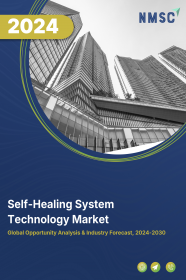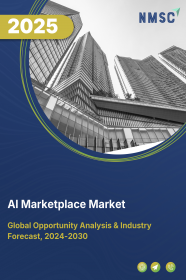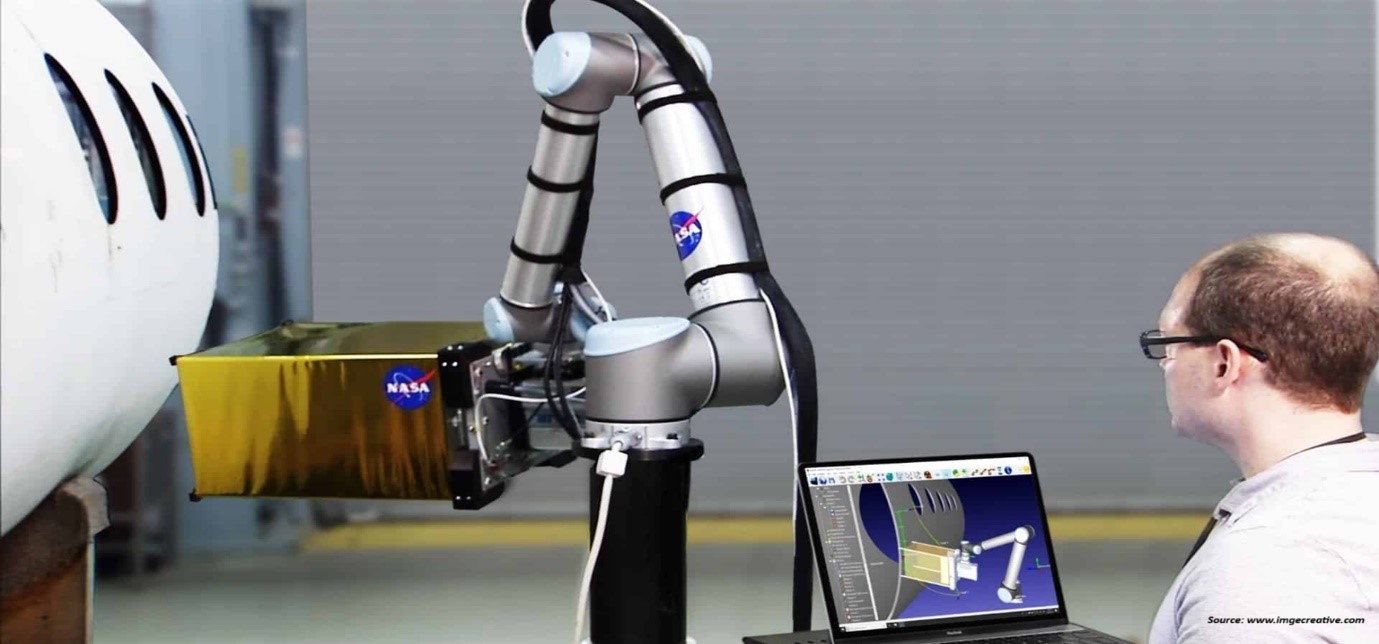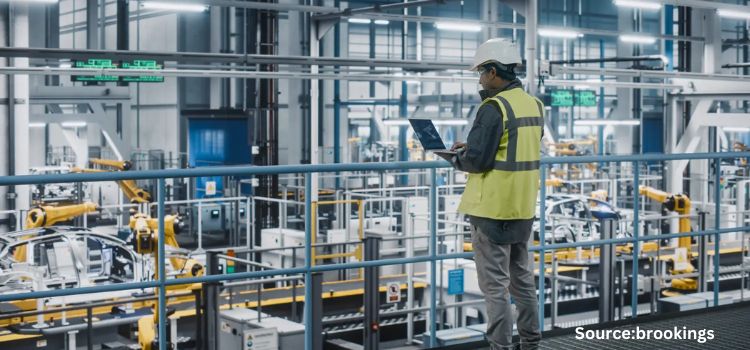
Self-Healing System Technology Market by Level of Healing (Application Level, System Level, Hardware Level), by Type (Reactive Healing and Preventive Healing), by Enterprises Size (SMEs and Large Enterprises) and by Industry Vertical (Automotive & Transportation, Healthcare, Life Sciences, Building & Construction, Banking, Financial Services and Insurance, IT & Telecommunication, Electronics & Semiconductor, and Others) - Global Opportunity Analysis and Industry Forecast 2021-2030
US Tariff Impact on Self-Healing System Technology Market
Trump Tariffs Are Reshaping Global Business
Market Definition:
The Self-healing System Technology Market size was valued at USD XX million in 2020 and is predicted to reach USD XX million by 2030 with a CAGR of XX% from 2021-2030.
Self-healing system technology is a technology through which a device or a system can discover anomalies in its operation and make necessary adjustments to restore itself to a better-functioning state without human intervention.This technology is responsible to keep all the components within an IT infrastructure up and running, be it an application, a piece of hardware or the network itself. It continuously monitors the system, discover errors and reports any deviation occurred from its expected behavior, with an aim to ensure that the system is working normally. Companies around the world are striving hard to develop self-healing systems as they have the potential to improve quality, reduce costs and boost customer trust substantially. Some of the monitoring processes includes server monitoring, database monitoring, network monitoring, application performance monitoring, and log monitoring among others.
Market Dynamics and Trends:
Increased investments towards AI and machine learning in countries such as China, the U.S., Japan, U.K., and Germany due to various government initiatives aimed at adopting advance technologies have been driving the growth of self-healing system technology market. For instance, to help combat the growing disparity between the number of growing incidents and the shortage of IT service desk agents to handle them, many businesses are turning to self-healing system technology.
Moreover, accelerating industrial digitalization across the globe with rising need for technological enhancements for data-driven offerings in manufacturing industry is another factor expected to boost the growth of the market in the near future. Self-heal system technology takes into account several factors such as process automation, remote access and monitoring of not only downtime but of weak signals, IT infrastructure management, accurately creating an IT forecast, current tickets, and past incidents with connections to problems.
However, high cost of self-healing system technology has limited the exploration activities in research & development of self-healing materials are the factors restraining the growth of market during the forecast period. On the contrary, growing demand for self-healing systems technology across various industry verticals and its high demand in emerging economies such as India and China are expected to create ample growth opportunities for the market in the coming years.
Moreover, Self-healing system technology is intrinsically tied to self-help or self-service IT as it works in the background to alert users and agents of the problem, prompting users to find common resolutions before escalating to the agents. This will ultimately enable IT departments to diagnose and resolve incidents and problems using automation, self-service, and an integrated ITSM tool.
Market Segmentations and Scope of the Study:
The self-healing system technology market is segmented on the basis of level of healing, type enterprise size, industry verticals, and geography. On the basis of level of healing, the market is divided into application level, system level and hardware level. On the basis of type, the market is divided into reactive healing and preventive healing. On the basis of enterprise size, the market is classified into small & enterprises and large enterprises. On the basis of industry verticals, the market is categorized into automotive & transportation, healthcare and life sciences, building & construction, banking, financial services and insurance, IT & telecommunication, electronics & semiconductor, and others. Geographic breakdown and analysis of each of the aforesaid segments includes regions comprising of North America, Europe, Asia-Pacific, and RoW.
Geographical Analysis:
Asia-Pacific self-healing system technology market is expected to drive the global market during the forecast period. This is attributed to factors such as high demand for electronics and surging demand for self-healing system technology in countries such as China, India, and South Korea. Moreover, North America self-healing system technology market garnered high revenue in 2020 due to the presence of major key players and high adoption of AI in this region. Furthermore, rising demand for self-healing materials in automotive sector is expected to drive the self-healing system technology market growth in Europe region.
Competitive Landscape:
The self-healing system technology market is comprised of various market players such as ABB Ltd, Adobe, Inc., Advanced Systems Concepts Inc., Absolute Software Corporation, Cisco Systems, Inc., DXC Technology, IBM Corporation, Heal Software Inc., Hitachi Ltd, and Microsoft Corporation. These market players are adopting various enhancement strategies and planning expansion of business across various regions to maintain their dominance in the high purity aluminum market.
For instance, on May 4, 2021 IBM unveiled two new self-healing system technology, as well as a major revision of its IBM Tivoli Monitoring product, which features a new graphical interface to create programs that automatically respond to system problems.
Key Benefits:
-
The self-healing system technology market report provides the quantitative analysis of the current market and estimations through 2021-2030 that assists in identifying the prevailing market opportunities to capitalize on.
-
The study comprises a deep dive analysis of the self-healing system technology market trend including the current and future trends for depicting the prevalent investment pockets in the market.
-
The information related to key drivers, restraints and opportunities and their impact on the self-healing system technology market is provided in the report.
-
The competitive analysis of the market players along with their market share in the self-healing system technology market.
-
The SWOT analysis and Porters Five Forces model is elaborated in the study.
-
Value chain analysis in the market study provides a clear picture of the stakeholders’ roles.
Key Market Segments:
By Level of Healing
-
Application Level
-
System Level
-
Hardware Level
By Enterprise Size
-
Small and Medium Enterprises
-
Large Enterprises
By Industry Verticals
-
Automotive & Transportation
-
Healthcare and Life Sciences
-
Building & Construction
-
Banking, Financial Services and Insurance
-
IT & Telecommunication
-
Electronics & Semiconductor
-
Others
By Geography
-
North America
-
U.S
-
Canada
-
Mexico
-
-
Europe
-
UK
-
Germany
-
France
-
Italy
-
Spain
-
Rest of Europe
-
-
Asia-Pacific
-
China
-
India
-
Japan
-
South Korea
-
Australia
-
Rest of Asia-Pacific
-
-
RoW
-
UAE
-
Saudi Arabia
-
South Africa
-
Brazil
-
Remaining Countries
-
Key Players:
- ABB Ltd
- Adobe, Inc.
- Advanced Systems Concepts, Inc.
- Absolute Software Corporation
- Cisco Systems, Inc.
- DXC Technology
- IBM Corporation
- Heal Software, Inc.
- Hitachi Ltd
- Microsoft Corporation
REPORT SCOPE AND SEGMENTATION:
|
Parameters |
Details |
|
Analysis Period |
2020–2030 |
|
Base Year Considered |
2020 |
|
Forecast Period |
2021–2030 |
|
Market Size Estimation |
Million (USD) |
|
Market Segmentation |
By Level of Healing (Application Level, System Level, Hardware Level), by Type (Reactive Healing and Preventive Healing), by Enterprises Size (SMEs and Large Enterprises) and by Industry Vertical (Automotive & Transportation, Healthcare, Life Sciences, Building & Construction, Banking, Financial Services and Insurance, IT & Telecommunication, Electronics & Semiconductor, and Others) |
|
Geographical Segmentation |
North America (U.S., Canada, Mexico) Europe (UK, Germany, France, Italy, Spain, Rest of Europe), Asia-Pacific (China, Japan, India, Australia, South Korea, Rest of APAC), Rest of the World (UAE, Saudi Arabia, South Africa, Brazil, Remaining Countries) |
|
Companies Profiled |
ABB Ltd, Adobe, Inc., Advanced Systems Concepts Inc., Absolute Software Corporation, Cisco Systems, Inc., DXC Technology, IBM Corporation, Heal Software Inc., Hitachi Ltd, and Microsoft Corporation. |














 Speak to Our Analyst
Speak to Our Analyst





















